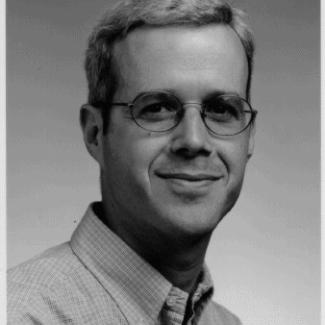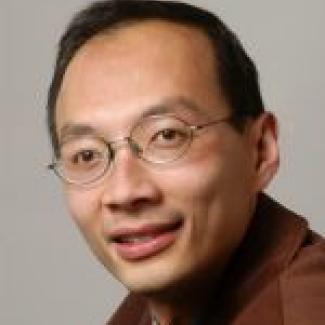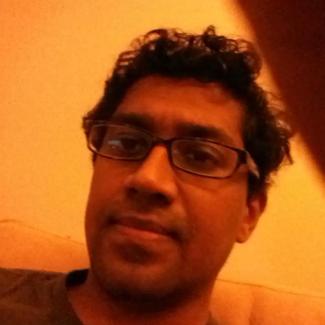
The three terms in the title of the workshop are three facets of the same basic question: what information can be gleaned from observed data? In information theory, especially in universal compression, observed data is used to better compress new information; in machine learning, observed data is applied to classify and predict new instances; and in big data, observed data helps with data mining and more general inferences about the domain. This workshop will bring together participants from these three communities to combine different techniques and apply them to problems in diverse applications areas. The techniques of interest include distribution modeling, sublinear sample learning, sparse recovery, and spectral methods in machine learning. Applications may include data compression, data security, natural language processing, advertising, data mining, bioinformatics and genomics, social networks, and finance. One particular theme is the learning of high dimensional structure, on which much recent progress has been made in the various communities.
Enquiries may be sent to the organizers at this address.
Support is gratefully acknowledged from:
Emmanuel Abbe (Princeton University), Jayadev Acharya (Massachusetts Institute of Technology), Animashree Anandkumar (UC Irvine), Venkat Anantharam (UC Berkeley), Alexandr Andoni (UC Berkeley), Elaine Angelino (UC Berkeley), Peter Bartlett (UC Berkeley), Misha Belkin (Ohio State University), Stéphane Boucheron (Université Paris Diderot), Guy Bresler (Massachusetts Institute of Technology), Jehoshua Bruck (California Institute of Technology), Tony Cai (University of Pennsylvania), Amit Chakrabarti (Dartmouth College), Kamalika Chaudhuri (UC San Diego), Mahdi Cheraghchi (Massachusetts Institute of Technology), Thomas Courtade (UC Berkeley), Marco Dalai (University of Brescia), Hirakendu Das (Yahoo Labs), Sanjoy Dasgupta (UC San Diego), Ilias Diakonikolas (University of Edinburgh), Stark Draper (University of Toronto), John Duchi (Stanford University), Cynthia Dwork (Microsoft Research), Klim Efremenko (University of Chicago), Moein Falahatgar (UC San Diego), Farzan Farnia (Stanford University), Vitaly Feldman (IBM Almaden), Anna Gál (University of Texas, Austin), Aurélien Garivier (University of Toulouse), Parikshit Gopalan (Microsoft Corporation), Al Hero (University of Michigan), Thomas Holenstein (ETH Zürich), Piotr Indyk (Massachusetts Institute of Technology), Ashkan Jafarpour-Koujahi (UC San Diego), Sidharth Jaggi (Chinese University of Hong Kong), Rahul Jain (National University of Singapore), Adel Javanmard (Stanford University and UC Berkeley), T.S. Jayram (IBM Almaden), Jiantao Jiao (Stanford University), Sham Kakade (Microsoft Research New England), Adam Kalai (Microsoft Research New England), Sudeep Kamath (Princeton University), Ravi Kannan (Microsoft Research India), Sreeram Kannan (University of Washington), Cari Kaufman (UC Berkeley), Victoria Kostina (Princeton University), Lap-Chi Lau (University of Waterloo), Kangwook Lee (UC Berkeley), Michael Luby (Qualcomm Inc.), Mokshay Madiman (University of Delaware), Yishay Mansour (Tel Aviv University), Shannon Mccurdy (UC Berkeley), Páll Melsted (University of Iceland), Olgica Milenkovic (University of Illinois, Urbana-Champaign), Vinith Misra (Stanford University), Ankur Moitra (Massachusetts Institute of Technology), Marco Mondelli (École Polytechnique Fédérale de Lausanne), Andrea Montanari (Stanford University), Chandra Nair (Chinese University of Hong Kong), Arkadi Nemirovski (Georgia Institute of Technology), Huy Nguyen (Princeton University), Robert Nowak (University of Wisconsin-Madison), Mesrob Ohannessian (UC San Diego), Alon Orlitsky (UC San Diego), Samet Oymak (UC Berkeley), Lior Pachter (UC Berkeley), Dheeraj Pichapati (UC San Diego), Toniann Pitassi (University of Toronto), Yury Polyanskiy (Massachusetts Institute of Technology), Miklos Racz (UC Berkeley), Jaikumar Radhkrishnan (Tata Institute of Fundamental Research), Maxim Raginsky (University of Illinois, Urbana-Champaign), Kannan Ramchandran (UC Berkeley), Gireeja Ranade (UC Berkeley), Pradeep Ravikumar (University of Texas, Austin), Meisam Razaviyayn (Stanford University), Thomas Richardson (Qualcomm Inc.), Benjamin Rossman (National Institute of Informatics), Aviad Rubinstein (UC Berkeley), Anant Sahai (UC Berkeley), Venkat Saligrama (Boston University), Narayana Santhanam (University of Hawaii), Eren Şaşoğlu (UC Berkeley), Leonard Schulman (California Institute of Technology), Rocco Servedio (Columbia University), Devavrat Shah (Massachusetts Institute of Technology), Nihar Shah (UC Berkeley), Ilan Shomorony (Cornell University), Ali Sinop (Institute for Advanced Study, Princeton), Ananda Suresh (UC San Diego), Wojciech Szpankowski (Purdue University), Li-Yang Tan (Columbia University), David Tse (Stanford University), Himanshu Tyagi (Indian Institute of Science), Rüdiger Urbanke (École Polytechnique Fédérale de Lausanne), Gregory Valiant (Stanford University), Paul Valiant (Brown University), Ramon van Handel (Princeton University), Ameya Velingker (Carnegie Mellon University), Sergio Verdú (Princeton University), Pramod Viswanath (University of Illinois, Urbana-Champaign), Krishnamurthy Viswanathan (HP Labs), Pascal Vontobel (Chinese University of Hong Kong), Aaron Wagner (Cornell University), Martin Wainwright (UC Berkeley), Marcelo Weinberger (NSF Center for Science of Information), Omri Weinstein (Princeton University), Tsachy Weissman (Stanford University), Frans Willems (Technische Universiteit Eindhoven), David Woodruff (IBM Almaden), Mary Wootters (Carnegie Mellon University), Yihong Wu (University of Illinois, Urbana-Champaign), Sergey Yekhanin (Microsoft Research), Bin Yu (UC Berkeley).







